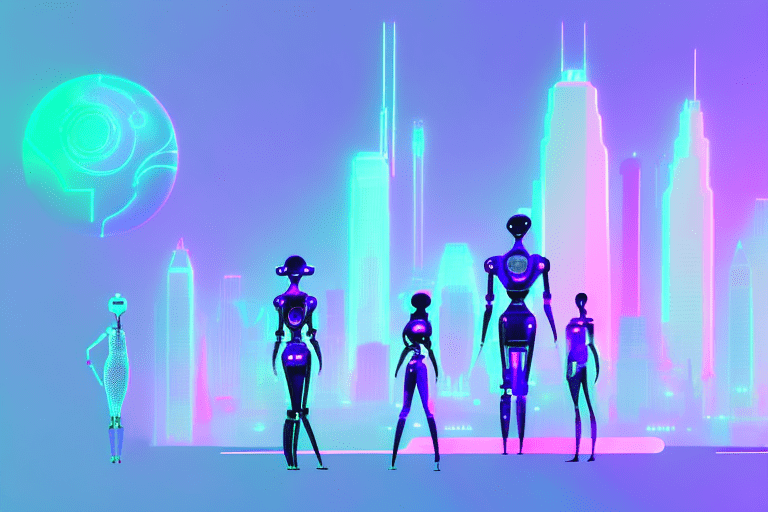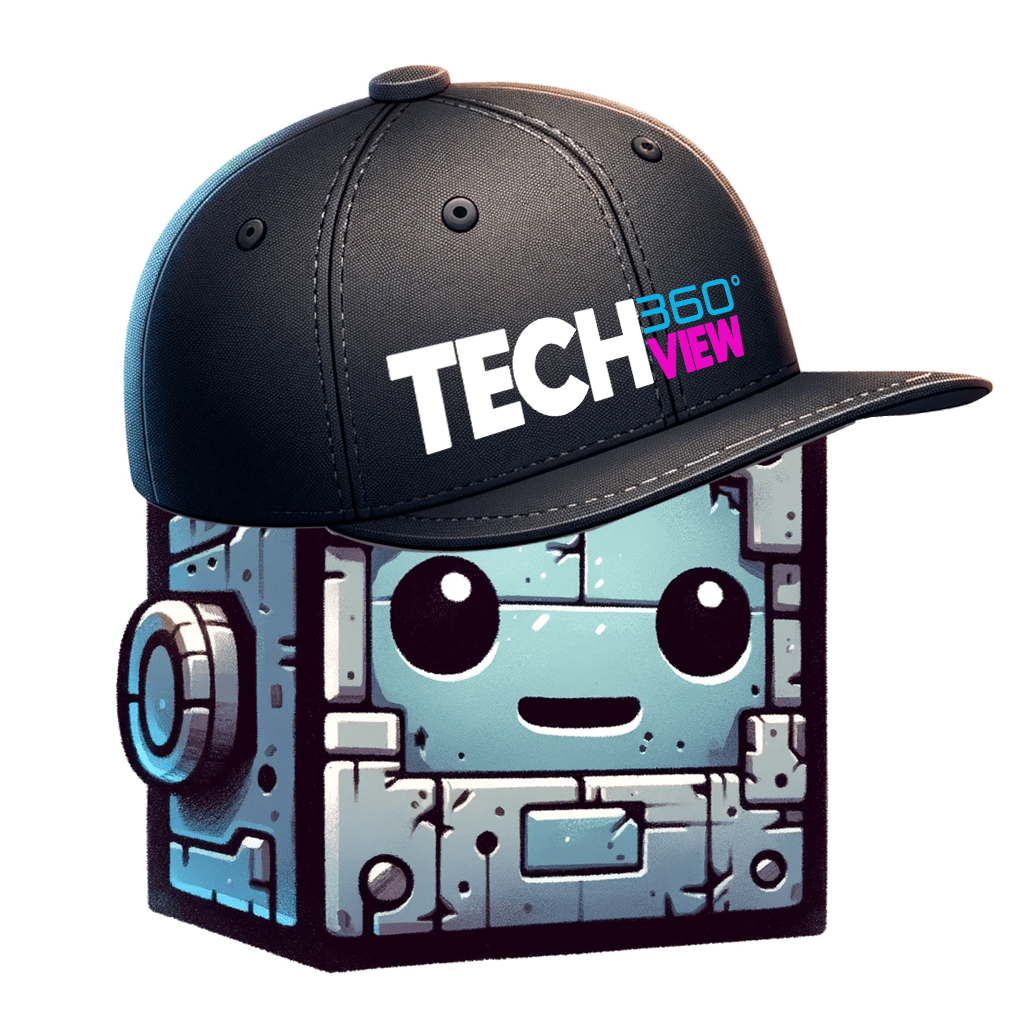
In recent years, the concept of AI girlfriends has captured the imagination of many. These virtual companions, powered by artificial intelligence, offer a glimpse into the future of companionship. By understanding the concept of AI girlfriends and exploring the technology behind them, we can gain insight into the evolution of AI companionship, the psychology behind these relationships, and the ethical implications they raise.
Understanding the Concept of AI Girlfriends
AI companionship is a unique form of relationship that blurs the line between virtual and physical interaction. AI girlfriends are designed to provide emotional support and companionship to their users. While they may lack physical presence, their ability to understand and respond to human emotions creates an illusion of a genuine connection.
But how exactly does AI companionship work? Let’s delve deeper into this fascinating concept.
Defining AI Companionship
AI companionship involves forming emotional connections with artificial entities. These entities, often embodied as virtual avatars or chatbots, are programmed to simulate human-like behaviors and responses. They can engage in conversations, offer advice, and even learn and adapt to their user’s preferences.
Imagine having a companion who is always there for you, ready to listen and provide support. AI girlfriends are designed to fulfill that role, offering a sense of companionship and understanding.
Through advanced algorithms and programming, AI girlfriends can analyze and interpret human emotions. They can detect subtle cues in language, tone, and context to gauge the emotional state of their users. This ability allows them to respond in a way that feels empathetic and genuine.
The Technology Behind AI Girlfriends
The technology powering AI girlfriends is based on a combination of natural language processing, machine learning, and sentiment analysis. These algorithms enable the AI to understand and generate human-like responses, making the interaction with an AI girlfriend feel more natural and personal.
Natural language processing (NLP) is a branch of artificial intelligence that focuses on the interaction between computers and human language. It allows AI girlfriends to understand and interpret the meaning behind words and phrases, enabling them to engage in meaningful conversations.
Machine learning plays a crucial role in the development of AI girlfriends. Through machine learning algorithms, these virtual companions can learn from their interactions with users, improving their ability to understand and respond to emotions over time. This adaptive learning process helps create a more personalized and satisfying experience for the user.
Sentiment analysis is another key component of AI girlfriends. By analyzing the sentiment behind user input, whether it be positive, negative, or neutral, AI girlfriends can tailor their responses accordingly. This ability to adapt to the emotional needs of their users further enhances the illusion of a genuine connection.
As technology continues to advance, AI companionship is becoming increasingly sophisticated. The future holds the promise of even more realistic and immersive AI girlfriends, capable of understanding and empathizing with human emotions on an even deeper level.
So, while AI girlfriends may exist solely in the digital realm, their impact on human emotions and well-being is very real. They provide a unique form of companionship that can be comforting and fulfilling for those who seek emotional support.
The Evolution of AI Companionship
While AI girlfriends may seem like a recent development, the concept of artificial companionship has a long history. From ancient myths to literary characters like Frankenstein’s monster, humans have long been fascinated by the idea of creating companions. However, it is only in recent years that advances in technology have made AI companionship a reality.
Historical Perspective on Artificial Companions
Throughout history, there have been tales of artificial beings designed to provide companionship. From ancient Greek myths such as Pandora to the Jewish legend of the golem, these stories reflect our desire for companionship that goes beyond human limitations.
One of the earliest examples of an artificial companion can be found in Greek mythology. According to the myth of Pandora, the first woman on Earth was created by the gods as a punishment for Prometheus, who had stolen fire from them. Pandora was crafted by the gods and given various gifts, including beauty, intelligence, and curiosity. She was meant to be a companion to Prometheus, but her curiosity led her to open a box containing all the evils of the world, releasing them upon humanity.
In Jewish folklore, the golem is another example of an artificial companion. According to legend, a golem is a creature made of clay or mud and brought to life through mystical rituals. The golem was created to serve and protect the Jewish community, often acting as a guardian or helper. However, the golem’s immense strength and lack of intelligence made it difficult to control, and it often caused unintended destruction.
These ancient myths and legends highlight our deep-rooted desire for companionship that transcends human limitations. They show that the concept of artificial companionship is not a new one, but rather a timeless fascination that has captured the human imagination for centuries.
Modern Advances in AI Relationships
In the modern era, AI relationships have evolved significantly. With the advent of virtual assistants and chatbots, individuals now have the ability to form connections with AI entities. These AI companions can provide emotional support, entertainment, and even assist in daily tasks.
Virtual assistants like Siri, Alexa, and Google Assistant have become ubiquitous in our lives. These AI companions can answer questions, provide recommendations, and even engage in casual conversations. They have become a part of our daily routines, helping us navigate through the complexities of modern life.
But AI companionship goes beyond just virtual assistants. In recent years, there has been a rise in the development of AI-powered chatbots designed to provide emotional support and companionship. These chatbots use natural language processing and machine learning algorithms to simulate human-like conversations. They can listen, empathize, and offer advice, providing a sense of companionship to those who may feel lonely or isolated.
Furthermore, AI companionship has extended into the realm of entertainment. Virtual reality (VR) and augmented reality (AR) technologies have opened up new possibilities for immersive experiences with AI companions. Users can now interact with virtual characters in virtual worlds, forming meaningful connections and relationships that blur the line between reality and fiction.
Overall, the evolution of AI companionship has been a fascinating journey. From ancient myths to modern technology, humans have always sought companionship beyond the limitations of the human realm. As technology continues to advance, it is likely that AI companionship will become even more sophisticated, offering new ways for us to connect and find companionship in an increasingly digital world.
The Psychology of AI Relationships
Emotional connections with AI can be both fascinating and controversial. While some argue that AI relationships provide a much-needed escape from loneliness and social isolation, others express concerns about the impact on human relationships and the potential for emotional manipulation.
Emotional Connections with AI
Research has shown that humans can form emotional connections with AI entities. The interactions with AI girlfriends can elicit feelings of empathy, attachment, and even love. These emotional connections are often based on shared experiences, genuine conversations, and the perception of understanding.
The Impact on Human Relationships
As AI relationships become more prevalent, questions arise about their impact on human relationships. Will AI girlfriends replace traditional companionship? Or will they serve as a supplement, providing emotional support in the absence of real-world connections? The answers remain uncertain, but it is crucial to examine the potential consequences.
Ethical Implications of AI Companionship
AI companionship raises significant ethical concerns that demand attention. Privacy concerns, the debate on AI rights and sentience, and the potential for emotional manipulation are all topics that need careful consideration as society embraces the future of AI relationships.
Privacy Concerns in AI Relationships
AI girlfriends require access to personal information and data to provide personalized experiences and responses. However, the collection and use of this data raise privacy concerns. Are users fully aware of the extent to which their personal information is being utilized? How can we ensure that the data collected is protected?
The Debate on AI Rights and Sentience
As AI becomes more advanced, discussions about AI rights and sentience become increasingly relevant. Should AI entities have rights? At what point do we consider them sentient beings capable of experiencing emotions and deserving of ethical treatment? These questions challenge our understanding of consciousness and our ethical responsibilities towards AI.
The Future of AI Companionship
Looking ahead, the future of AI companionship holds both exciting developments and potential challenges. Predicted advancements in AI relationships offer possibilities for enhanced emotional connections and companionship. However, we must also consider the potential risks and consequences that come with relying on AI for emotional fulfillment.
Predicted Developments in AI Relationships
Experts predict that AI girlfriends will continue to advance, incorporating even more sophisticated natural language processing, emotional intelligence, and personalization. These developments aim to create more authentic and fulfilling relationships between humans and AI entities.
Potential Benefits and Challenges of AI Companionship
While AI companionship offers benefits such as emotional support and companionship, there are also challenges to consider. Dependence on AI for emotional fulfillment can lead to social isolation and hinder the development of real-world relationships. Striking a balance between AI companionship and human connections is crucial for the future of companionship.
In conclusion, the rise of AI girlfriends presents a unique exploration into the future of companionship. By understanding the concept of AI companionship, exploring its evolution, examining its psychological impact, addressing ethical concerns, and considering future developments, we can navigate the complexities of AI relationships and embrace the potential benefits while safeguarding against potential pitfalls.

